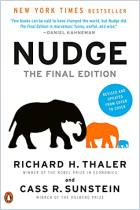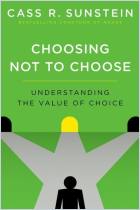
Constitutional Limits to Paternalistic Nudging
A Proportionality Assessment
Recommendation
“Paternalistic nudging” is a form of “choice architecture” that you may not realize affects many of your day-to-day decisions. Take, for example, the graphic warnings on cigarette packages: They steer many people away from smoking, via personal choice, despite smoking being completely legal. In this selected chapter, University of St. Gallen law professor Anne van Aaken introduces various paternalistic measures and analyzes their effectiveness. She asks whether the ends justify the means and if the means are lawful under the German Constitution. getAbstract recommends this thought-provoking article to anyone with interests in psychology, autonomy and the rights and responsibilities of government.
Summary
About the Author
Anne van Aaken, PhD, is a professor of law and economics, legal theory, public international law, and European law at the University of St. Gallen in Switzerland.























Comment on this summary or 开始讨论